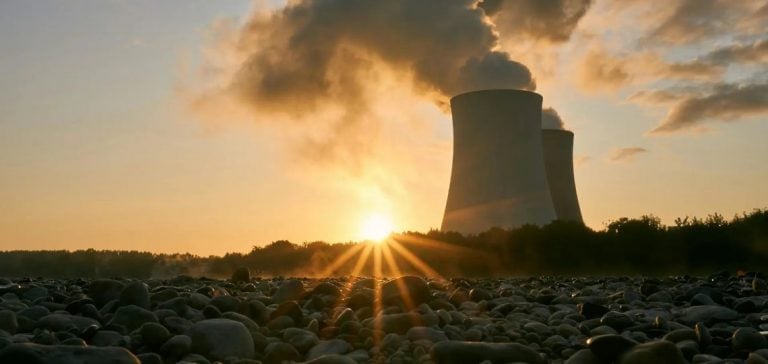The Serbian government is intensifying efforts to revive nuclear energy, despite a ban in place since 1989. At the time, this ban was imposed after the Chernobyl disaster. However, the desire to diversify its energy sources now pushes Serbia to consider lifting this prohibition.
In a recent meeting between Serbian Deputy Prime Minister Aleksandar Vulin and Rosatom Director General Alexei Likhachev, discussions focused on expanded cooperation in nuclear technologies, particularly in non-energy applications. The two sides also examined the involvement of Russian companies in Serbian projects and the participation of Serbian companies in international projects.
An ambition supported by international partnerships
In March 2024, during the Nuclear Energy Summit in Brussels, Serbian President Aleksandar Vučić had already expressed his desire to gather public support for lifting the nuclear ban. The goal is to reach a production capacity of 1200 MW through small modular reactors (SMR), a technology considered safer and more flexible than traditional reactors.
The Serbian government has taken concrete steps to achieve this goal. The Serbian Ministry of Energy has awarded a contract to French company EDF and engineering consultancy firm Egis to conduct a technical study on the potential use of nuclear energy in the country. This partnership marks the first step toward integrating nuclear power into Serbia’s energy mix.
A national strategy in development
In addition to partnerships with EDF and Egis, Serbia has brought together a group of national and international experts to develop a nuclear energy program. This group is tasked with studying various scenarios for integrating nuclear energy into the Integrated National Energy and Climate Plan, which outlines the country’s energy policies for the coming years.
Serbia has also engaged in discussions with the International Atomic Energy Agency (IAEA) to leverage its expertise in nuclear safety and infrastructure development. This cooperation aims to ensure that international standards are adhered to, while securing a safe transition to nuclear energy.
A potential energy shift
If current discussions are successful, Serbia could join a growing list of European countries betting on nuclear energy to reduce their reliance on fossil fuels. Small modular reactors (SMR), with lower capacity but greater flexibility, are seen as an effective solution to meet future energy needs while minimizing the risks associated with large nuclear power plants.






















